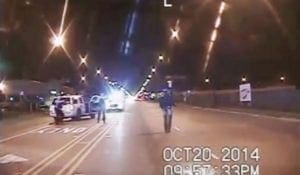Chicago Police ‘Intentionally Destroying’ Police Car Dashcams, Microphones
This article was featured in our weekly newsletter, the Liberator Online. To receive it in your inbox, sign up here.
Chicago is notorious for gun-related violence. With some of the toughest anti-gun rights on its books, the city struggles to keep its residents safe. With pro gun control advocates making the case that the town’s gun-related violence is due to the fact most people purchase their guns illegally, it’s hard not to see how enacting more restrictive laws won’t make a difference.
But gun violence alone is not the only issue in Chicago.
According to Washington Post’s Radley Balko, corruption among Chicago Police Department officers continues to expose countless of innocent residents to unconstitutional abuses.
DNA Info Chicago reviewed over 1,800 police maintenance logs of the city’s many police cars to learn why 80 percent of the footage captured by squad car dashboard cameras in the city is often silent.
Last month, Chicago officials blamed the absence of audio on two factors, error and “intentional destruction.” With the help of the maintenance records, researchers found that, in many cases, officers pulled out batteries of their microphones, stashed full microphones in their glove boxes, and even destroyed microphone antennas. Microphones have also disappeared in several occasions.
But the research team also wanted to discover why footage of a particular 2014 incident involving a Chicago officer and a teenager did not contain any audio. What DNA Info learned is nothing short of horrifying.
On October 20, 2014, 17-year-old Laquan McDonald was killed by officer Jason Van Dyke. The encounter’s footage was widely shared online. But while the video went viral, none of the patrol cars’ cameras present at the scene were able to capture any audio.
The dashcam attached to the patrol car used by Van Dyke had been sent to repair at least twice prior to the killing. According to DNA Info, police technicians reported on June 17, 2014 that a dashcam wiring issue had been fixed three months after the camera had been brought in for repair. But just one day later, the same dashcam was sent back to technicians.
According to the records obtained by DNA Info, technicians claimed that the issues presented the second time were due to “intentional damage.”
Twelve days after the camera came back from the technician’s desk, McDonald was killed.
Van Dyke’s patrol car camera did not register any audio of the incident. The video that went viral was recorded by another patrol car.
As the nation debates criminal justice reform, incidents like the one involving McDonald and officer Van Dyke should be part of the discussion.
Overcriminalization is a real issue. To Tim Lynch, the director of the Cato Institute’s Project on Criminal Justice, “too many officer-involved shootings receive little scrutiny.” Setting emotions aside and bringing these issues to light may give the public a better idea of what the solution is. But simply standing idly by as law enforcement, state officials, and lawmakers push for more laws, more restrictions, and more penalties won’t do.





















